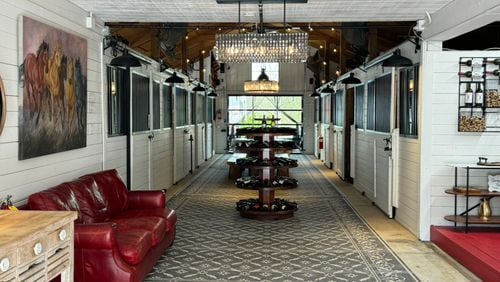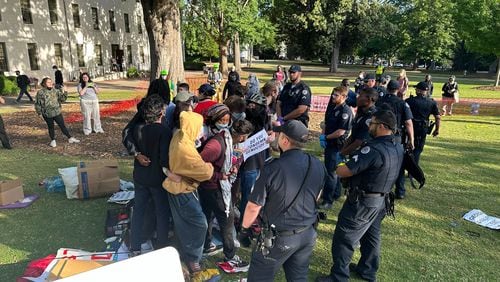Milton has denied an alcohol license to the owners of a farm winery after six months of pushback from neighbors who said they oppose a commercial business in their quiet neighborhood.
In a 5-1 vote Monday night, Milton City Council denied the license to Jim Rosenberger for D’Rose Vintners, a winery he created with his wife Daryn. Only Councilwoman Carol Cookerly voted in favor of the measure.
Ten acres of the Rosenbergers’ property was approved for rezoning to agricultural in 2021, which allowed them to create the farm winery. The couple says they’ve spent hundreds of thousands of dollars in developing the winery and tasting room, and deserve to be reimbursed by the city if denied the alcohol license.
During the meeting, City Attorney Ken Jarrard recommended denial. He read an April 4 letter from Rosenberger attorney Greg Hecht that said the couple would likely sue Milton for more than $8 million if City Council did not vote in their favor.
Jarrard told councilmembers that the Rosenbergers don’t have a right to be reimbursed for their costs because the city placed a moratorium on rezoning applications and permits for farm wineries two weeks after their rezoning was approved in 2021.
“Upon the council taking that action, the public was on notice that rules were changing and individuals spent funds at their own peril,” Jarrard said.
Neighbors in Boxwood Estates and Providence Plantation were unaware until last fall of the Rosenbergers’ plan to create a farm winery with a tasting room open to the public. Residents say they opposed the plans, fearing heavy traffic and drunk drivers in their subdivisions.
The city has admitted the public was not adequately notified.
“I’m extremely pleased that the City Councill voted in favor of enforcing their own ordinances,” said Sarah Moen, a spokesperson for neighbors and president of Providence Plantation HOA. “I had no expectations coming into tonight’s meeting but I was hopeful for a denial.”
Residents spoke out during nearly two hours of public comment.
William Spurlock is 26-year resident of Providence Plantation, a subdivision of 37 homes where there’s one road to get in and out of the community.
“The people that will be coming to this venue will come through our neighborhood to a gated community,” Spurlock told City Council. “When (the Rosenbergers) get tired of people in their community, they can close the gate. We have no gate. You guys are our gate. We’re asking to please not allow a commercial business to be built in our small little residential community.”
Many weeks ago, the Rosenbergers revised their plans for the winery due to neighbors objections and cancelled the tasting room. But residents and city officials did not believe those plans would stay in place.
“It’s very frustrating from our perspective because we thought we put plans on the table that kept everyone safe; that kept everyone feeling they had been heard,” Jim Rosenberger said Tuesday. “We don’t feel that we were fairly treated. We do feel that we were targeted and we feel that the law is on our side should this (lawsuit) move forward.”
Rosenberger said the city “acknowledged” the winery’s business by issuing an occupational tax certificate, a certificate of occupancy and a temporary alcohol license.
Monday night, Councilwoman Cookerly warned the public that a Rosenberger lawsuit against the city could result in a win for the winery and lead to the couple implementing their original plans including the public tasting room.
“Tonight, I heard a lot of distrust at what they were willing (to change).” Cookerly said. “I want to vote for both parties (to have) a known outcome. Going to court is not a known outcome. If you think you’re going to win then you have something braver in your crystal ball than I do.”







